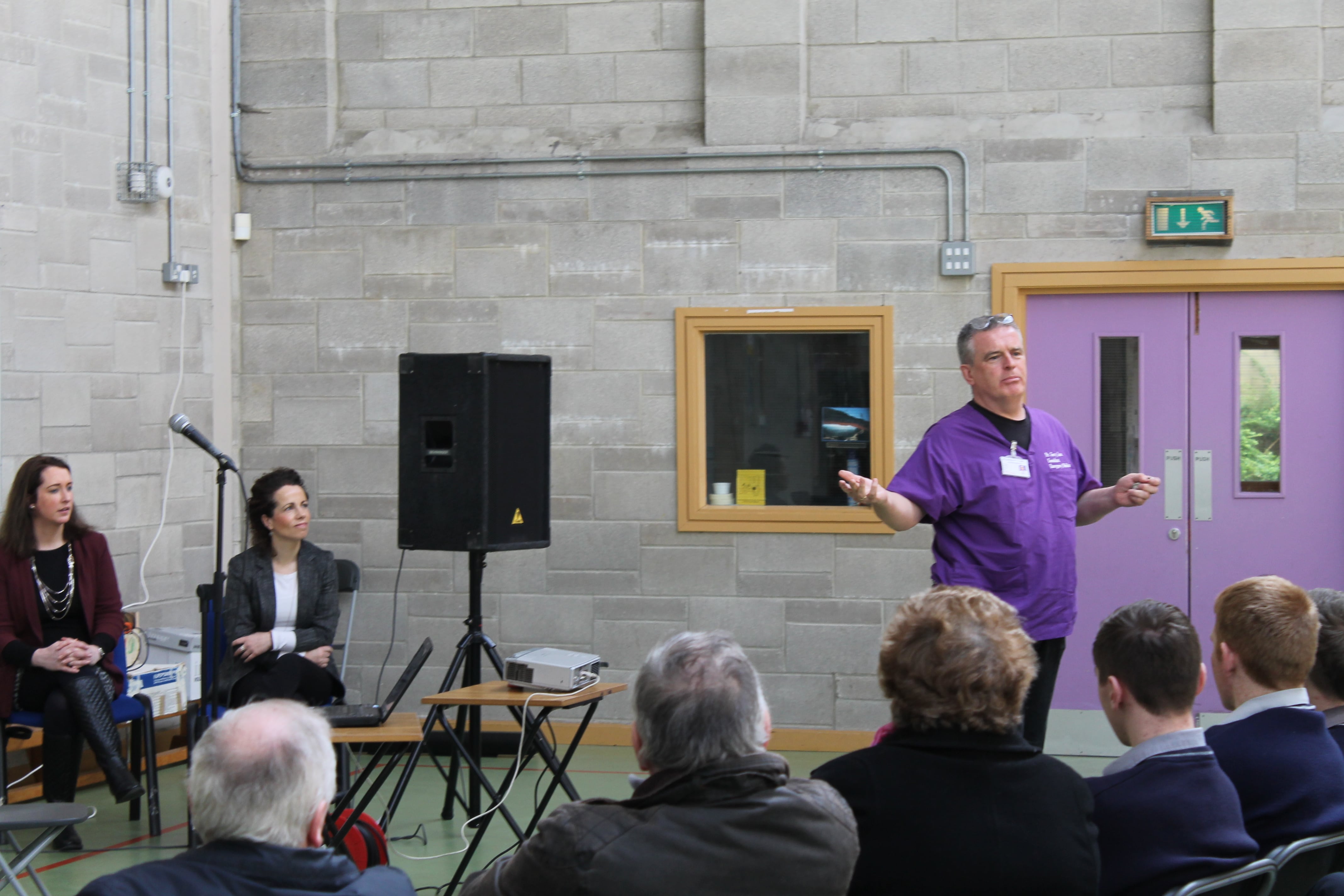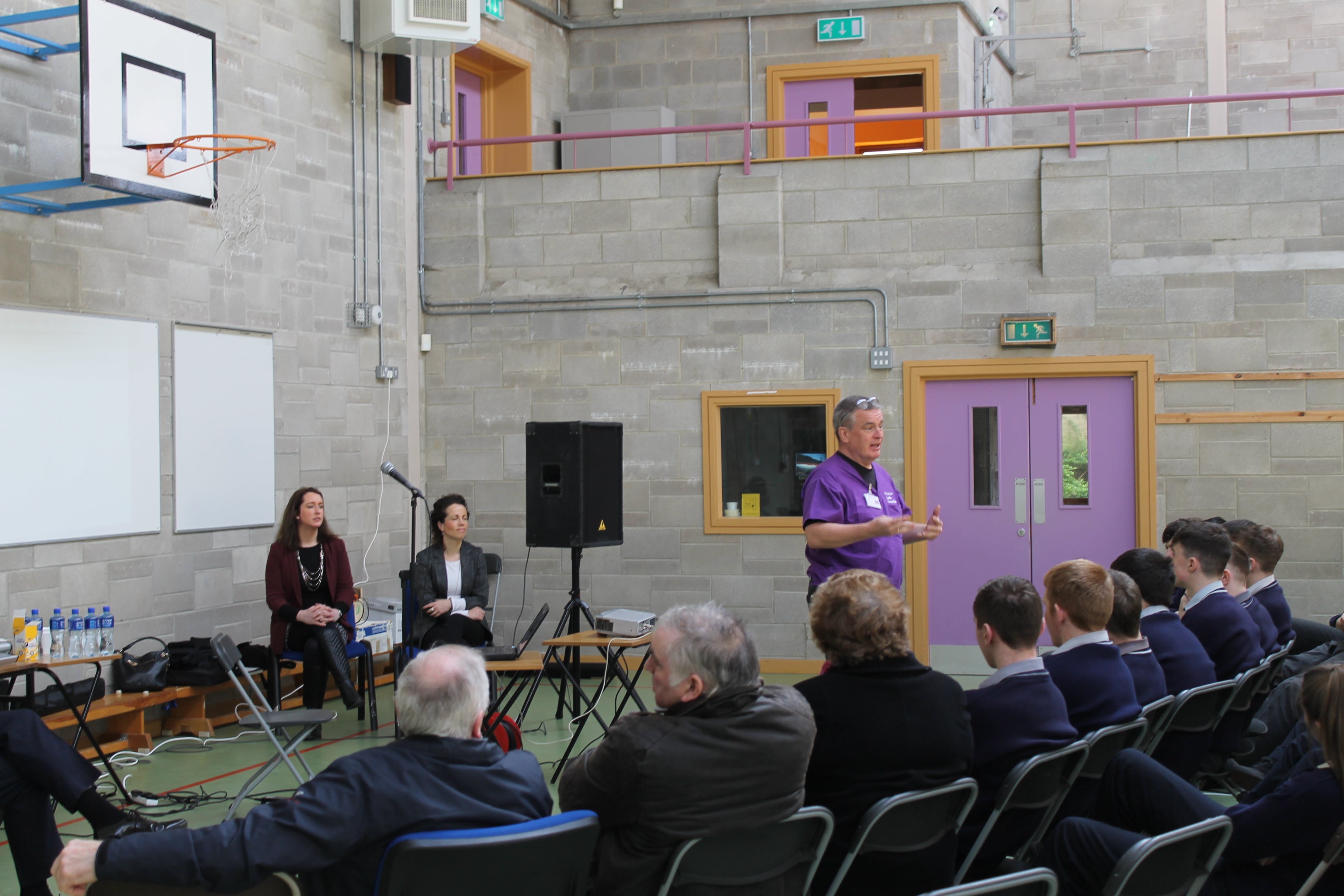Schools in Milford took part in a community roads safety initiative organised by North Donegal Community Network (NDCN) this week, with a number of guest speakers visiting Mulroy College and Loreto Community School to talk to students on roads safety and driver responsibility.
James Trearty, a local community representative and lead organiser of the initiative outlined its importance.
He said “As young people begin to learn how to drive and begin driving on our local roads, with this great independence comes great responsibility. It’s too late unfortunately to change our driver behaviour when something bad happens on our roads, and we are delighted that both the students and the schools have come on board in helping us to promote this important message. Driving with care is in the interests of the entire community.”
Speaking at the event, Brian O’Donnell, Roads Safety Officer with Donegal County provided an outline of some of the key statistics regarding road traffic incidents and fatalities within Donegal and Ireland.
Each of the statistics brought attention to the unfortunate reality that hidden behind the numbers, were people’s lives and families impacted every day in the aftermath of incidents on our roads.
Garda Superintendent David Kelly spoke to students in the schools on driver responsibility.
“We are here today to talk to you because we care about you and we want you to be safe on our roads. On our roads, the highest number of road traffic incidents occur for people aged 25 years and under, your age group is at high risk and we hope you can help us to change that. All drivers should be aware of their actions on the road and how they can impact on both their own safety and that of others road users.”
Superintendent Kelly outlined some of the key causes of road traffic incidents and accidents encountered by Garda in Donegal, to include mobile phone usage while driving, driving under the influence of drugs/alcohol, speeding, driver distraction and irresponsible actions such as donuts and diffing.
“Social media can be misused to send out a false message to young people that irresponsible driving behaviour is something to be glorified. Can I say that the reality is, that we see first-hand some of the consequences of this behaviour when we are tasked to deal with incidents and people’s lives can be changes in an instant forever,” he said.
Superintendent Kelly outlined a few basic things that we all can do to protect ourselves on the roads, such as wearing a seatbelt, being aware of speed particularly on small rural roads, turning off mobile phones or other distractions and having regard for other road users.
Dr Gerry Lane, consultant in emergency medicine at Letterkenny University Hospital had a discussion with the students on his work in the hospital, the causes of road traffic accidents for the people who he and his team had helped in accident and emergency, and provided some key advice on how people can protect their lives while on the roads.
“The biggest danger to you in a car, if you are unfortunate to be in a collision, can be your girlfriend or boyfriend that is also in the car, if they are not wearing a seatbelt. This is also true of anyone else that is within the car. When an accident happens, the person you love can actually be the biggest threat to your life, so please, don’t be afraid to ask them to wear a seatbelt or to stop using their phone or to slow down.
“If you are in a car and you feel that someone is putting your life in danger in any way, you can take responsibility by asking them to stop. If you feel your life is at risk ask them to let you out of the car. Your mum or dad would be happy to come and collect you wherever you are, rather than for something to happen to you.”
The students had pre-prepared a series of questions which Doctor Lane answered honestly and openly.
Doctor Lane said that the most difficult aspect of his work was speaking the with the families and relatives of people whose lives had been changed forever as a result of accidents or incidents on the roads, “what you see is something that you can’t switch-off, and of course it does replay in your mind, when you care so much about people.” Doctor Lane outlined how each casualty stands out in his mind, and he outlined how one parent was mystified as to how he could remember details 12 years onwards of a fatal occurrence
North Donegal Community Network would like to thank the Principals and staff in both schools for partnering with the local community to bring attention to this important message, for accommodating the speakers and for the welcome received.
Particular thanks are expressed to teachers Catherine Crawford and Lisa Fitzsimmons, who worked jointly with the community in organising the talks. Speaking afterwards Bernard Trearty Chairman of North Donegal Community Network thanked Stephen Barrett from Donegal Local Development Company for supporting this project which was a first ever for the network.

















